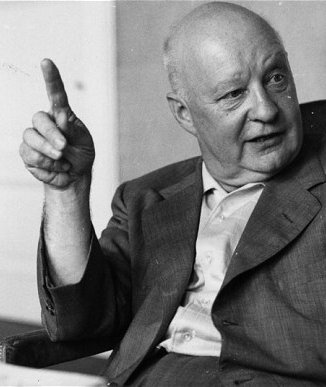
Paul Hindemith
Paul Hindemith (1895-1963) was a German composer, conductor, musicologist and music teacher, violinist and violist; he was an unavoidable figure in 20th century music. Conservative concert audiences found his early works outrageous and provocative with their unusual new tone, garish dissonances, and strange, jazz-like rhythms. He was a pioneer of new music, and his works were regularly performed at the Donauschingen Festival, one of the most important venues for music of the day. In Nazi Germany he was persecuted for “cultural Bolshevism”, his music was called “degenerate” and in 1934 the regime banned broadcasting of his works on the radio. Later, public performances of his works were also prohibited. Even with one of the greatest authorities on conducting, Wilhelm Furtwängler, defending him, the Nazis kept persecuting Hindemith; he first went to work in Turkey where he founded the Ankara Conservatory, then emigrated to Switzerland and on to the United States in 1938. His compositional style ‘tamed’ over the years to become more neoclassical. Even though Hindemith received US citizenship in 1946, he returned to Europe in 1953 and settled in Switzerland. Until 1957, he alternated between teaching at Yale and Zurich Universities. During his final years he conducted and composed. He was a great and internationally-respected innovator, someone who could apply both theoretical and practical approaches to music. He composed epoch-making works in practically every genre, from opera through chamber music to symphonic compositions and concertos.